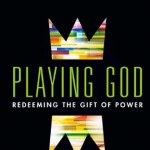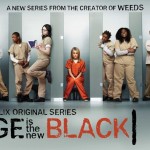Director Terrence Malick’s fifth feature film, The Tree of Life, is a film universal in scope; it covers the period from the beginning of time to the termination of planet Earth, and beyond. But it is also a film about the particular: a particular boy in a particular family in a particular place. Taken together, then, Malick’s project is to place our particularity in the context of the universal—and to try to make us understand that we can only make sense of ourselves in this context.
An essential aspect of this project is to take aim at our propensity to divide our lives and experiences into discrete segments, that is, to remove ourselves even for a time from the universal story. We desperately want to be able to wall off parts of our lives as morally insignificant, either as a prophylactic against guilt or as a post hoc rationalization to assuage guilt. In order to accomplish this, Malick suggests, we smuggle in from science the concept of “experimentation,” the tentative, exploratory nature of which we think diminishes its moral significance.
The word “experiment” appears twice in The Tree of Life. First, shortly after we meet adult Jack O’Brien he has a brief, stilted conversation with a coworker. The unnamed man says wearily: “She wants to get back together, but that chapter’s closed. The story’s been told.” “What are you going to do?” Jack responds. “Experiment.”
No one talks like this in real life, and the brief dialogue advances the plot (such as it is) in no substantial way. (We never see or hear from the man again.) This is exactly how we know this conversation is important. What it has done is introduce the idea of moral experimentation that will be fleshed out later in the film.
Jack’s coworker speaks three short clauses. The first establishes his break-up from a lover; the second closes off that part of his life as no longer significant to the present; the third reaffirms this while introducing the concept of a story which has ended. After Jack’s question, the coworker opens up a new exploratory phase of his life, marked off from both the immediate past and the future to come. Experimentation is a transitional searching phase which we want to believe is somehow less real than what comes before and after. It is also a phase of moral laxity during which much is permitted as part of the search to (re-)discover what is real, true, and good.
The other instance of “experiment” is during young Jack’s period of intense moral confusion. His faith in the moral authority of his fathers, human and divine, has been deeply shaken in the first case by his father’s despotic inconsistency in applying his rules to himself and in the second case by God’s permitting Jack’s classmate to drown. The confusion deepens as Jack falls under the influence of a local hooligan, Robert, who encourages him to break windows and explode bird’s nests, devilishly calling his transgression bravery.
In one of these instances of transgression, Robert suggests the boys tie a frog to a miniature toy rocket and set him off. Jack sets up the rocket and Robert lights it; we only hear the explosion as the creature is destroyed. After some unease as the gang searches for what’s left of the frog, Robert yells, “It was an experiment!” Here we see experimentation used as a post hoc rationalization for an evil act. As part of an exploration into rocketry, destroying the frog is no longer a morally significant decision.
But this is not how virtue and vice work. Jack continues to “experiment,” each time feeling worse about his transgression, but each time going further than the last. This dance with evil culminates in inviting his guileless youngest brother to place his finger over the muzzle of a bb-gun—and pulling the trigger. R.L. scampers off crying as much out of betrayal as out of pain, while Jack paces listlessly.
Jack wants to know how far is too far. At what point, in this morally confused world, does conscience kick in and inform him, unequivocally, that he has done something really wrong? But the fact of the matter is that each time he does feel his conscience—Malick makes this clear—and yet he continues purposefully to escalate his transgression.
Experimentation with evil doesn’t teach us about right and wrong; rather, it acclimates us to itself. Evil does not permit itself to be passively explored. It takes full advantage of our openness to it, encouraging us to try the next transgression, even flattering us, like Robert, giving vice the cover of virtue. We cannot quarantine it within a particular stage of life or within ourselves; it can only be purged. But how?
Jack’s intensifying self-hatred is healed by the simplest of gestures, physical and spiritual, from his brother. Jack asks for forgiveness, and R.L. grants it. Then, in a gesture that can be best described as sacramental, he places his hand on Jack’s hands, then his shoulder, then his bowed head. This is followed by Jack’s whispered prayer over a scene of the boys playing: “What was it you showed me?”
It was, of course, love.












